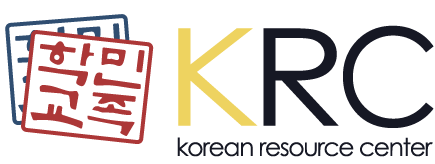 Kwangchoon Lim of the Korean Resource Center holds a sign protesting the proposed ordinance Tuesday during a Glendale City Council meeting. (Alex Collins / News-Press)
Kwangchoon Lim of the Korean Resource Center holds a sign protesting the proposed ordinance Tuesday during a Glendale City Council meeting. (Alex Collins / News-Press)
Vote on absentee ballots delayed: Opponents win reprieve on proposed changes to rules on applications after councilman relents.
By Jason Wells
Published: January 29, 2008
http://www.glendalenewspress.com/articles/2008/01/30/politics/gnp-absent...
CITY HALL — Immigrant advocacy and community service groups won a temporary victory Tuesday night after they successfully lobbied the City Council to postpone voting on an ordinance that would restrict municipal candidates from handling absentee ballot applications once they are filled out.
The last-minute offer came from Councilman John Drayman in a down-to-the-wire result that precluded what would have surely been a 3-2 vote to confirm the ordinance.
Instead, city staff members will have two weeks to hold at least one community outreach meeting for a give-and-take on the ordinance and its potential impacts with the public. City Clerk Ardy Kassakhian will also prepare a report on how taking campaign offices out of the equation will affect his office’s ability to handle an expected influx of absentee ballot applications that are spoiled.
The two-week period also gives opponents of the ordinance a reprieve and time enough to consider their threats of legal action against the city if it is passed.
Despite a last-minute introduction of an amendment to the draft ordinance clarifying that it was focused solely on the submittal of the absentee ballot application to the City Clerk’s Office — and not on voter education and registration programs — opponents said they would carry their fight into the courts.
“Passing this law will guarantee a lawsuit against the city, which will cost the city again,” said Zanku Armenian, a board member for the Armenian National Committee Western Region.
Without advanced knowledge of the proposed amendment, the united opposition front made up by several community service organizations on Tuesday had called on the council to table the ordinance until more public input could be gathered.
The idea gained traction with Councilman Frank Quintero, and found automatic support from Mayor Ara Najarian and Councilman Bob Yousefian, who have opposed the ordinance from the start. “The point is to help the public understand what we’re doing here,” Drayman said. “And there may be something here that we’re missing.”
But their arguments could not sway Dave Weaver, who voted against the extension. He, along with Drayman and Quintero, have long argued that it would protect the integrity of the absentee balloting process and take electioneering out of voter follow-ups, although there have been no charges of voter fraud filed in Glendale.
While Tuesday’s meeting was decidedly less heated than last week, when the draft ordinance was introduced, the contention it has sparked had clearly turned into more than what was expected for some on the council.
“It’s just beyond me that this has turned into such an emotional issue,” Quintero said.
The vote was a slight victory for those who have been lobbying the council for nearly two weeks to abandon the measure until it gathers more public input on its impacts and scope.
Despite the opportunity for more lobbying, opponents said they would join the Armenian National Committee in pursuing their agenda in the courts if it ultimately does not go their way.
“What is left?” said Grace Loo, executive director of the Korean American Coalition Los Angeles branch. “We were hoping they would be more amiable.”
Historically, Glendale election candidates have been allowed to distribute absentee ballot applications with a return address to their campaign offices. They are allowed 72 hours to then turn those applications in to the City Clerk’s Office.
Candidates use the applications to gauge how many residents are likely to vote for them, and then use their addresses to follow up with applicants after the ballots have been mailed through the City Clerk’s Office.
The proposed ordinance would eliminate that step, requiring voters to send their absentee ballot requests directly to the city clerk.
Nonprofit service and political action organizations have called the measure discriminatory on the basis that it would also take them out of the equation, preventing first-generation immigrants from the voter education and help services that are vital to their participation in the election process.
“The process is not as simple as just getting somebody to vote,” said Damian Carroll, immediate past president for the San Fernando Valley Young Democrats.
While Glendale’s proposed system mirrors the one used in Los Angeles, its difference with the county and state system — which allows the 72 hours stay over — would be confusing for voters and the people who help them, opponents argued.
“We shouldn’t be making voting more difficult,” said Hyun Joo Lee, national organizer for the National Korean American Service and Education Consortium.
Her group would investigate the ordinance for violation of the Voting Rights Act, she added.
The Armenian National Committee Glendale Chapter has been especially critical, initiating an e-mail campaign lobbying the council to forgo the ordinance, saying a vote for the measure “was a vote for discrimination.”
Elen Asatryn, the committee’s executive director, would not comment on any legal action but said the ACLU was reviewing the matter as her organization planned its next move.
The city is expected to announce the time and location of the public hearing in coming days. The City Council will hear the results of that effort Feb. 19, before holding a final vote on the ordinance.
[delicious]Glendale+english[/delicious]
